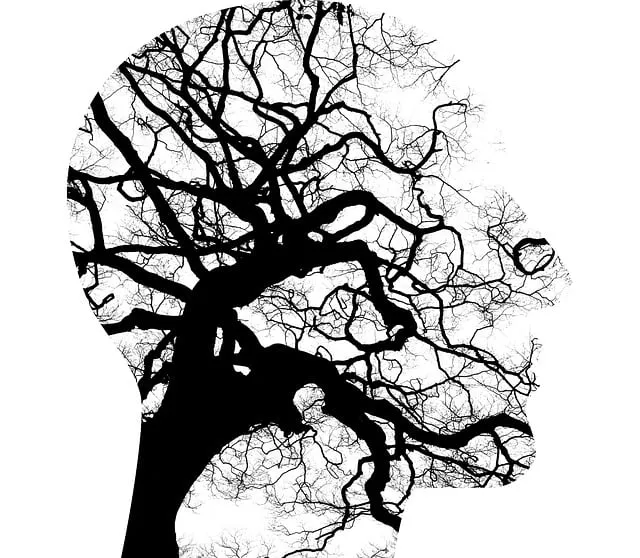Boulder Kaiser Permanente behavioral health services reviews highlight effective group facilitation for enhanced mental wellness and community support. Facilitators use conflict resolution, stress reduction techniques, and evidence-based practices to create safe spaces. Active listening, empathy, cultural competency training, and peer support foster open communication and trust. Engaging activities like journaling build a supportive community, and measuring success through assessments and feedback ensures positive outcomes.
Mental wellness group facilitation plays a pivotal role in enhancing collective well-being. This article explores effective techniques for facilitating supportive environments, engaging participants through interactive activities, and measuring the impact of these sessions. Drawing from the expertise of Boulder Kaiser Permanente behavioral health services, we provide insights into fostering communities that thrive. Discover how these strategies can transform lives and promote mental resilience within group settings.
- Understanding Group Facilitation for Mental Wellness
- Techniques to Foster Safe and Supportive Environments
- Engaging Activities for Building Community
- Measuring Success: Evaluating Group Facilitation Impact
Understanding Group Facilitation for Mental Wellness

In the realm of mental wellness, group facilitation plays a pivotal role in fostering community and support among individuals facing similar challenges. At Boulder Kaiser Permanente behavioral health services, understanding this dynamic is key to delivering effective care. Group sessions provide a unique environment where participants can share experiences, offer mutual support, and learn from one another—a powerful tool for enhancing mental wellness.
Facilitators employ various techniques such as conflict resolution methods to navigate group dynamics, ensuring everyone feels heard and respected. By incorporating stress reduction methods and mood management strategies into these sessions, facilitators create a safe space for individuals to cope with anxiety, depression, or trauma. These evidence-based practices not only improve individual well-being but also contribute to building a resilient community within the group, mirroring positive changes seen in various Kaiser Permanente behavioral health services reviews.
Techniques to Foster Safe and Supportive Environments

Creating a safe and supportive environment is essential for effective mental wellness group facilitation. Techniques such as active listening, empathy, and non-judgmental attitudes foster an atmosphere where participants feel comfortable sharing their experiences and emotions openly. Facilitators should also encourage peer support by promoting a culture of respect, understanding, and confidentiality, mirroring the values promoted by healthcare providers like Boulder Kaiser Permanente behavioral health services reviews.
Integrating Mind Over Matter principles can significantly enhance this process. By teaching individuals to manage stress, build resilience, and cultivate self-compassion, facilitators empower participants with valuable tools for self-esteem improvement. Additionally, cultural competency training for healthcare providers ensures that group sessions are inclusive and sensitive to diverse backgrounds, making the environment even more supportive and beneficial for all members.
Engaging Activities for Building Community

Creating a supportive community within mental wellness groups is essential for fostering open communication and enhancing participants’ feelings of belonging. Engaging activities that encourage interaction and shared experiences can significantly strengthen group dynamics. For instance, incorporating group journaling exercises where members reflect on their personal journeys allows them to connect on a deeper level, fostering a sense of unity. This technique, inspired by Mental Wellness Journaling Exercise Guidance, encourages vulnerability and understanding, which are key components in building trust among peers.
Additionally, cultural competency training for healthcare providers, often offered by organizations like Boulder Kaiser Permanente behavioral health services, plays a vital role in creating an inclusive environment. By promoting awareness of diverse backgrounds and perspectives, facilitators can ensure that group activities resonate with every member, fostering a safe and welcoming atmosphere. This approach not only enhances the Mental Health Awareness but also encourages participants to actively engage in discussions, sharing unique insights shaped by their personal experiences and cultural backgrounds.
Measuring Success: Evaluating Group Facilitation Impact

Measuring success is a vital aspect of group facilitation, especially when it comes to evaluating the impact on mental wellness. Facilitators at Boulder Kaiser Permanente behavioral health services reviews often employ various methods to assess the effectiveness of their programs. This can include pre- and post-group assessments, where participants’ mental health status, coping mechanisms, and overall well-being are gauged. By comparing these evaluations, facilitators can quantify improvements and identify specific areas that require further attention or refinement in group design.
Additionally, qualitative feedback from participants through surveys or one-on-one discussions offers valuable insights. This approach allows for a deeper understanding of individual experiences within the group setting. For instance, Trauma Support Services may gather responses on how Mind Over Matter Principles have empowered participants to manage their trauma-related symptoms and enhance their overall mental health education. Such qualitative data complements quantitative measures, providing a comprehensive view of the group facilitation’s success in fostering positive mental wellness outcomes.
Group facilitation techniques play a pivotal role in enhancing mental wellness, as demonstrated by Boulder Kaiser Permanente behavioral health services reviews. By creating safe and supportive environments, engaging participants through diverse activities, and measuring success through evaluation, these strategies foster profound community-building and positive outcomes. Incorporating these practices can revolutionize mental health support, making it more accessible and effective for all.






